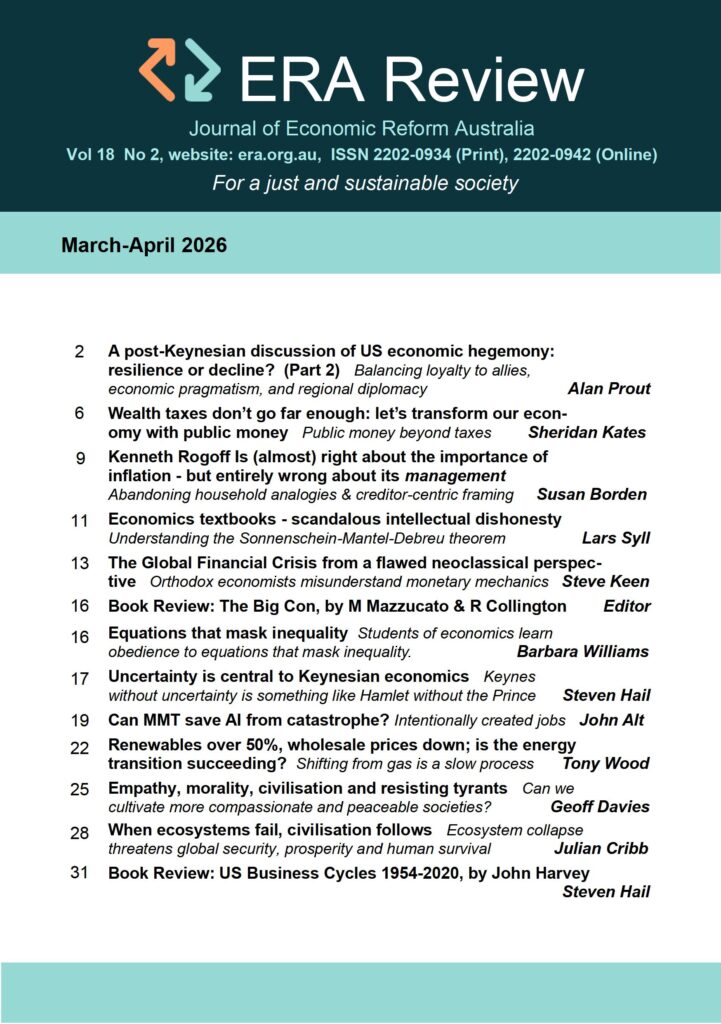Subsidies, Good or Evil?
Doris Phelps
I suppose that most regular readers of the ERA Review are agreed that the present situation, in which privately owned banks are allowed to profit from the creation of the nation‘s money supply, is undesirable. It is fairly obvious that the Government, through a government-owned bank, should have this duty. lf this were to come about, no doubt there would be many lively discussions as to the best ways to benefit the nation by the use of this government-created money. An argument always used to oppose the creation and distribution of money by governments is that it would lead to galloping inflation. Of course it could, if money were created in ridiculous amounts and distributed unwisely, but it need not be so. One way in which it could have exactly the opposite effect would be by using it for consumer subsidies.
Over the years, because of overproduction brought about in European countries by subsidy payments, “subsidy” has become a dirty word. But those were subsidies paid to producers, without enough thought given to how much demand there was for the goods the farmers were thereby encouraged to produce. A subsidy designed to benefit consumers need not lead to overproduction.
Between I963 and l988 there was in Australia a subsidy known to farmers as the ‘super subsidy’. Fertiliser manufacturers were paid a subsidy, not on any amount of superphosphate they cared to produce, but on what Australian Farmers were willing to buy. “A producer of these fertilisers was not entitled to the subsidy unless a number of conditions were met, including that the goods were sold by the producer for use in Australia and the full benefit passed on to the purchaser” (Hon Warren Truss MP, former minister for Agriculture).
In other words, the subsidy was used to keep the consumer price down to a certain level. It worked well, enabling the manufacturer to sell more of his product, and the farmer to buy fertiliser at a price he could afford. Both parties were winners. Because it was not necessarily paid on goods produced, but only on those purchased, it did not lead to overproduction.
This kind of subsidy, in the way it affects consumers, and in the way it could be administered, has sometimes been described as a sales tax in reverse. There is no reason why a government with the ability to create its own debt-free money, could not apply similar subsidies to many of the necessities of life, thus putting an end to the ever-climbing price spiral.
[Doris Phelps is a frequent contributor and a member of ERA(SA)]































